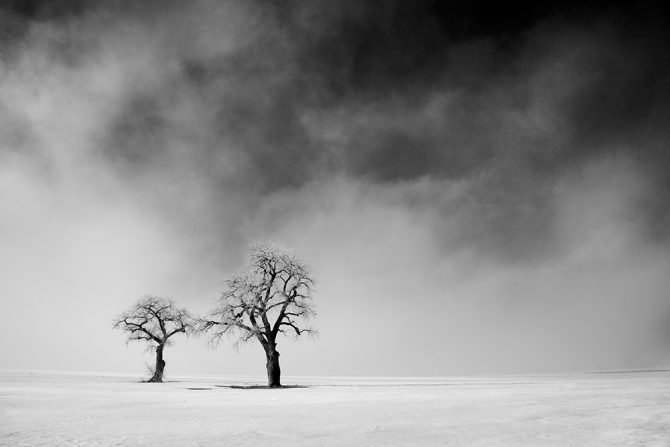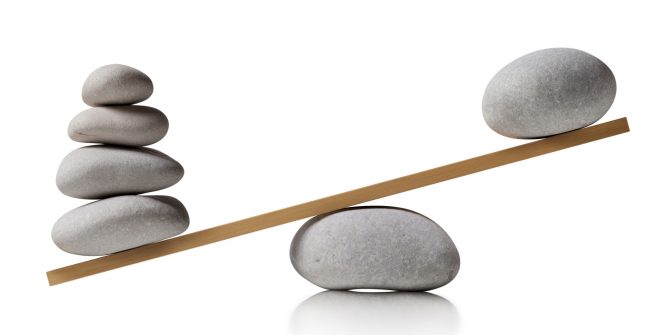November 21, 2014
Which is the Best Camera, Lens and Paper?

I’m often asked: what’s the best camera, lens or paper?
My answer is always the same: there is no “best.” Most cameras are excellent, almost all lenses are better than their masters and choosing a paper is simply about personal preference.
It’s easy to buy into the notion that the right equipment: camera, lens, accessories, plug-ins, printers or paper will transform our ordinary work into extraordinary images. However from my perspective great images are rarely great because they are technically perfect or printed on the right paper.
Or put more bluntly: I don’t think it really matters which equipment or paper you choose because they are not the critical component in a great image!
If you find yourself spending a lot of time researching the “best” (fill in the blank)…let me suggest another approach to improve your images.
Focus on the Image
Focus on your Vision
Focus on Composition
I believe a great image is created mostly from Vision and composition, and that technical skills plays a much smaller supporting role.

Where do you spend most of your time? Are you out of Balance?
But some will say: Can’t I seek both a great composition and technical perfection?
Yes, of course you can. But what I found in myself (and what I often see in others) was a tendency to spend the majority of my efforts on equipment, processes and technical issues, and very little time was spent working on my Vision or improving my composition.
I think the primary reason I did this was because I was insecure about my creative abilities, and I thought that I could compensate by excelling at the technical. And also let’s be honest, playing with equipment and learning new processes is just plain fun!
But Vision and composition is where the action is, and it’s how great images are created.
Cole

I usually spend as much time post-processing an image as I do travelling to a location and taking the picture. With digital photography a lot can be done to improve the color image in preparation for conversion to chromatic grayscale. I would suggest technique is as important as camera and lens.
I’ve always said that if you make good compositions, you can do anything with that image. Even if you’re stuck or feel uninspired, go out and try to make good compositions and thing will fall back into place.
Wow – fantastic image! How are you Cole?
Cole you are absolutely correct that for most of us, our cameras and lenses are better than we are anyway so it doesn’t really matter what we are shooting with. There are the rare instances were a complete mastery of the best equipment will get a shot that wasn’t possible otherwise, but that is by far the exception.
I don’t use half the capabilities and options of my workhorse Canon 7D, yet I rarely feel like the camera kept me from getting an image to come out as meaningful as I envisioned it. Most of the time the fault is clearly with my vision or composition. Yet I’m as much a gearhead as the next guy at times. I do go in spurts in that regard though, sometimes I even forget how many megapixels my camera sensor has. When I’m seeing and shooting compositions that excite me but not remembering that particular factoid, my head’s probably right where it ought to be.
Cole,
I always enjoy your comments because they say the same thing over and over in different ways, sort like a gunfight at the OK Corral. I wonder if you know of have seen any of Freeman Patterson’s books. I am engaged in one of his that could be a treatise on vision. The title is “Photography and the Art of Seeing.”
Have a great weekend.
Patrick
I’m with Sugoto…really grest image! Hope all is well!
I have to agree, Cole!
It really is so easy to spend time focusing(no pun intended) on cameras,lenses,etc.,and not your vision. I think if you stay true to that,then everything else will work out. Having said that, I’m probably not the only one on here who drops what they’re doing when the new B&H catalog arrives in the mail!
Patrick, read all of Freeman’s books. He is one of my favorite photographers. Studied with in in South Africa. Wonderful man.
Onto Cole’s point. Amen Brother! Until recently, I have never owned the newest, latest, greatest camera… It was not important to me. I watched a very good video recently and when asked about which camera to buy, her response was something like… “the one that you’ll use”. I loved that and it resonated with me. I love my Fuji X-T1 precisely for that reason. I adore the camera and have never used a camera more than I have it. I really don’t care if it is APS C or Full Frame, or Micro 4/3 or whatever… there are LOTS of great cameras out there. And your chart is about right… knowledge of gear and how to use it is indeed important, BUT not near as important as vision and making images often.
As an aside, here’s one more vote for the lessons in seeing that Freeman Patterson teaches.
But, Cole, it’s so much fun being a gearhead, like buying “THE” killer lure in fishing.
As for the formula, I was surprised there was no room for post processing, being the master of it in B&W that you are. I like the 1/3 formula: 1/3 craft; 1/3 vision; 1/3 post processing. Sam
I agree, but I think I’d make it 2/3 vision and composition and 1/3 technical. It’s important to know your gear (not necessarily in having the best but knowing how to use it) and how to process the image once taken. Can’t tell you how many times I’ve seen photographers with more money than photographic sense.
John B, nice meeting you yesterday evening at Frank Smith’s Atacama Desert exhibit. Enjoyed our talk about what Cole presents in this blog post and photographic celibacy.
Just in time to bring me to my senses as I considered pulling the trigger on an old Hasselblad 501, thanks! 🙂
Well said!
I remember going to an exhibit of Edward Weston’s work several years back. Along with many dozens of the master’s exquisite prints there was a case with 2 of his cameras on display, a couple of old Graflex view cameras as I recall, very primitive by modern digital standards. That has always stuck with me.
I also remember this quote from one of your previous blog entries, Cole:
“Great images do not come about because of equipment and processes, but rather from Vision that drives these tools to do wonderful things. What good are great technical skills if you don’t have an idea worthy of them?
If I had to choose between the best equipment in the world and no Vision or having a Kodak Brownie and my Vision…
I’d take the Brownie.”
This has also stuck with me.
🙂
I agree with you.
But I love to read about cameras, lenses etc, I know they wont help in vision, but technology is fun- I am still with photography for this ideal mix of science and art.
thanks
shashi
“whoever wins, has the most toys”, or something like that.
I was just gifted a vintage Pentax K1000, the giftor was was cleaning out a closet! So I bought a roll of film and have been playing with that re-immersion into manual .
Will be “fun” for at least one roll.
Thanks Cole.
Cole, how true your thoughts are. So many people chase technology instead of trying to take better pictures. So many of the great photographers had limited equipment (by todays standards) and often shot with one lens. If they wanted higher ISO they had to load a different film!
Cole a superb image, quiet and majestic. I came interested in photography over forty years ago when I saw the picture of Edward Weston’s pepper #30. Years later I had the opportunity to to stand in his darkroom and look at his simple setup and actually got to hold the original negative of pepper #30. I was blown away by what he used as an enlarger. It was a light bulb inside of a small cardboard hanging from the electric cord. He had an old beat up contact frame for making his contact prints. Everything he had equipment wise would be considered primitive to what we have access today. He had a love for vision and expressed it through his wonderful prints made on the most basic of equipment.
nice to read and Cole what is the best lens :o)